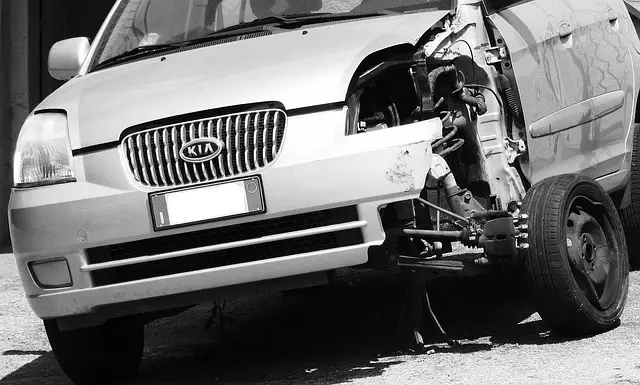In New York City, including The Bronx, trucking companies face strict liability laws for accidents causing severe injuries, notably closed head injuries (CHIs), which range from concussions to life-threatening conditions. These laws aim to protect road users and victims may be entitled to compensation for medical bills, lost wages, and pain & suffering. CHIs are a growing concern due to dense traffic and low-speed collisions. Trucking companies must prioritize driver training and well-being to minimize these risks. Stricter legal frameworks and insurance policies ensure safety and financial protection for both drivers and victims. Preventing truck accidents through maintenance, defensive driving, and advanced technologies is crucial to safeguard road users from CHIs in bustling urban areas like The Bronx.
In The Bronx, trucking company liability is a critical aspect of ensuring safety on bustling city streets. This article delves into the complex legal landscape surrounding these operations, with a focus on understanding the liability for truckers and their employers in cases of accident and injury, especially the growing concern of closed head injuries in New York City. From safety regulations to insurance policies, we explore strategies for prevention and management, shedding light on minimising truck-related incidents.
- Understanding Trucking Company Liability in The Bronx
- Closed Head Injuries: A Growing Concern in NYC
- Legal Framework for Trucking Safety Regulations
- The Role of Insurance Policies in Liability Cases
- Prevention and Management Strategies for Truck-Related Incidents
Understanding Trucking Company Liability in The Bronx

In New York City, including The Bronx, trucking companies operate under strict liability laws that protect both passengers and other road users in the event of an accident. When a truck is involved in a collision, the potential for severe injuries is heightened due to their size and weight. One common yet serious injury resulting from truck accidents is a closed head injury (CHI). CHIs can range from mild concussions to life-threatening conditions, necessitating immediate medical attention. Given the severity of these injuries, understanding trucking company liability is crucial for victims seeking justice and compensation in cases involving commercial vehicles in The Bronx.
Trucking companies have a responsibility to maintain safe operations, including ensuring vehicle maintenance, driver training, and adherence to traffic laws. Failure to do so can lead to significant legal repercussions. In the event of an accident caused by a trucking company’s negligence, victims may be entitled to compensation for medical expenses, lost wages, pain and suffering, and more. New York City’s legal framework provides a robust system for holding these companies accountable, ensuring that road safety and victim rights are protected.
Closed Head Injuries: A Growing Concern in NYC

Closed head injuries are a growing concern in New York City, particularly within the context of trucking accidents. These injuries, often overlooked due to their non-visible nature, can have severe and lasting effects on victims. Truck drivers and their companies share a significant responsibility for minimizing these risks. In NYC, where dense traffic and bustling streets contribute to a higher likelihood of collisions, understanding closed head injuries is crucial for both safety and legal considerations.
The impact of a collision, even at seemingly low speeds, can lead to complex brain trauma. Symptoms may range from immediate dizziness or headache to long-term cognitive issues and emotional disturbances. As such, trucking companies in the Bronx and across NYC must prioritize driver training and well-being to address this growing concern. By fostering a culture of safety and awareness, they can help mitigate the risk of closed head injuries and ensure the well-being of their drivers and other road users.
Legal Framework for Trucking Safety Regulations

In New York City, including The Bronx, trucking companies face stringent legal frameworks designed to ensure road safety. These regulations are a vital component in minimizing risks associated with commercial vehicles, particularly in densely populated areas like urban centers. The federal government sets the initial standards through agencies such as the Federal Motor Carrier Safety Administration (FMCSA), which dictates rules covering everything from vehicle maintenance to driver qualifications. State laws, including those specific to New York, further refine these standards, creating a comprehensive legal tapestry for trucking safety.
One critical aspect of this framework is addressing potential injuries, such as closed head injuries. These injuries, often sustained in accidents involving trucks, can have severe and long-lasting consequences. The Bronx’s active transportation network, with its heavy truck traffic, necessitates robust measures to protect both drivers and other road users. Strict liability laws and compensatory damages for victims of truck-related accidents, including those suffering closed head injuries, are integral to this safety net, ensuring accountability and support for those affected by trucking company negligence in New York City.
The Role of Insurance Policies in Liability Cases

In the event of a trucking accident, such as those that can occur in the bustling streets of New York City, insurance policies play a pivotal role in determining liability and financial outcomes. These policies are designed to protect both the trucking company and individuals involved in the incident. Comprehensive coverage, including liability insurance, medical payments, and property damage protection, is essential for truckers to mitigate risks on the road. In cases of personal injury, like closed head injuries, which can be particularly prevalent in high-density urban areas like The Bronx, insurance policies step in to cover medical expenses, rehabilitative care, and other related costs, ensuring that victims receive the necessary support during their recovery process.
Trucking companies in New York City are required to maintain adequate insurance coverage to comply with legal mandates. This includes compensating individuals for injuries sustained in accidents caused by their vehicles or drivers. In liability cases involving closed head injuries or any other type of personal harm, insurance policies serve as a financial safety net, helping to resolve claims efficiently and ensuring that victims receive fair compensation without facing the burden of extensive medical bills and legal fees out of pocket.
Prevention and Management Strategies for Truck-Related Incidents

Preventing and managing truck-related incidents is paramount for ensuring safety on New York City’s roads, especially considering the risk of severe injuries like closed head injuries. Effective strategies involve regular vehicle maintenance to check brakes, tires, and lighting systems, ensuring they operate optimally. Drivers should also undergo comprehensive training, emphasizing defensive driving techniques, hazard recognition, and adherence to traffic rules.
Implementing safety protocols such as requiring drivers to take regular breaks during long hauls can help mitigate fatigue, a significant factor in many truck-related accidents. Additionally, the use of advanced technologies like collision avoidance systems and telematics for real-time monitoring of driver behavior and vehicle performance can significantly enhance safety. These measures are crucial steps towards reducing incidents and protecting all road users, particularly vulnerable pedestrians and other vehicles in densely populated areas like The Bronx.
In conclusion, navigating trucking company liability in The Bronx requires a comprehensive understanding of the legal framework governing safety regulations, particularly regarding closed head injuries, which have emerged as a significant concern within NYC. The role of insurance policies is pivotal in managing liability cases, while proactive prevention and management strategies are essential to mitigate truck-related incidents. By adhering to these guidelines, both regulators and trucking companies can contribute to enhancing road safety and addressing the unique challenges posed by commercial trucking operations in densely populated urban areas like New York City.
